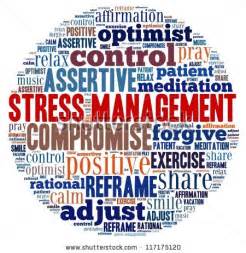You Can Battle Stress’ Effect on the Brain and Body

Can stress really harm our brain? Indeed it can. Chronic stress or toxic stress levels, the blood flow to the brain becomes constricted, which lowers the overall brain function, decreases a variety of brain activity levels, and actually prematurely “ages” the brain.
- Under a stress response, not only your body, but your brain becomes flooded with the stress “chemicals,” adrenaline and cortisol. Long-term exposure to these chemicals in the brain, particularly cortisol, impacts your short-term memory capacities to varying degrees, and can decrease your attention span.
- High brain cortisol levels can actually physically damage and shrink the brain’s hippocampus, which is part of the stress response system that sends out signals to halt the production of cortisol once the perceived threat or challenge has passed. With cellular damage to the hippocampus, it has an impaired capacity to send out this signal, resulting in even greater amounts of cortisol being released into the brain and body.
- Increased cortisol also impacts other parts of the brain that regulate and control your cognitive function and emotional balance. This can increase tendencies to become impulsive and highly irritable, and also make you more vulnerable to illnesses like depression.
- And most surprisingly, researchers have discovered that exposure to chronic and toxic levels of stress actually decreases the size of your brain. OMG! This is your brain. This is your brain on stress!
Because we are whole people, there are highly integral interactions between our brain and our physiology. The interactions between how we think and feel, and what happens in the body are real and instantaneous. When stress harms the brain, it can wreak havoc on the body. The body often will start sending you little (or big) “SOS” messages that something is “off,” maybe way off.
- Headaches, chronic insomnia, high blood pressure, digestive troubles, various physical pains and soreness, chronic levels of fatigue, and even illnesses like cancer and heart disease can emerge when you are in the “stress zone” over the longer term, and don’t take effective counter measures to reduce the stress you are experiencing.
- And lately, if you have been wondering why you might be carrying a little extra weight and can’t seem to lose those extra pounds, numerous studies have confirmed a strong link between psycho-physical stress and weight gain.
Becoming “Stress Hardy” / Stress Tolerant
Fortunately, there are many valuable and proven strategies and action steps we can take at the whole person levels to pro-actively deal with stress and convert it from distress to eustress as best we can.
We can “pump the boat” and deal! We want the ability to be resilient, stay committed, feel in control, and be challenged rather than threatened by stress.
Physical
- One master strategy is exercise! You can burn off stress chemicals in 10 – 20 minutes of physical exertion. Aerobics simulates “flight;” strength training simulates “fight.” Various fitness practices help you become stronger and more resilient at many levels, including your immune system, which gets a fantastic boost from increased fitness.
- High quality nutrition is essential to manage stress effectively. Small frequent healthy meals, and staying hydrated can be very important to maintain your daily energy and health—and fight stressors with excellent nutrition. Also, watch the caffeine intake—too much can aggravate your stress levels and increase inner states of anxiety or feeling “pressured” when you want to access emotions of being more emotionally calm (and mentally focused).
- Get a good night’s sleep. Sleep is critical for stress management, weight management and restoring many processes of the body, including the immune system
- Take short breaks at work and use longer recovery periods including weekends. Also, take vacations! Sometimes stress is not so much the culprit, but inadequate periods of short-term (and longer term vacation) recovery.
Mental / Emotional
- It is also very helpful to examine, challenge and actively dispute inner beliefs and emotions that arise that may be irrational, or actually contribute to aggravating or dramatizing the situation. Using awareness skills, look inside and see if you need to counter unrealistic and inaccurate attitudes and emotions.
- To increase resilience in the face of a stressful situation, it helps to engage our capacity for meaning. Tap into some purpose greater than the immediate situation that motivates you to do whatever it takes to weather that situation.
- To increase resilience in a stressful situation, use ingenuity; think about how you can utilize whatever is at hand to help you work through the current situation—moving, innovating, and finding new ways to do things that might improve the situation, versus adopting beliefs that you can’t be resourceful.
- You can also shift away from “fight or flight” symptoms of the sympathetic nervous system by taking a hot bath or a calm walk in nature to access your parasympathetic nervous system, the part of the nervous system that balances the stress chemicals and returns the body to a sense of balance.
- Doing fun relaxing activities you love to do, like a hobby, or reading non-work related materials, listening to great music, or finding ways to bring more laughter into your life. You don’t have to be soooo serious!
- Make decisions to set better boundaries (not rigid ones) between one more stressful area of your work or life, and other areas of your work and life. Find ways to NOT let a stress-filled circumstance “spill over” into other important areas of your life.
- Find reasonable strategies among these three choices for better stress management: avoid the key stressor(s); alter the key stressor(s); or adapt to the key stressor(s) using some of the above strategies suggested.
Spiritual
- Depending on your faith tradition or your personal point of view, time spent in prayer, reading spiritual texts, or attending group worship services, can help you handle stress better.
Social
- Research indicates one of the most effective strategies for handling stress is increasing your levels of interpersonal support. Your network of support—close co-workers, family, friends, coaches and mentors—key people you can talk to and who will be there for you in a difficult circumstance can help you handle stress much more effectively than isolating. Connecting more deeply with family members, or sharing your feelings with a close work colleague or friend, can really help you re-frame the circumstances.
Don’t let stress take you down. There are so many things that you can do to counter the deadly effects of stress and let stress be what it should be: a motivator for change, innovation, and growth. As a helpful take away, below is an exercise for you to help determine the ways that would work best for you to overcome the perils of stress.
Exercise 1:
Take a pen and paper and find five-ten quiet minutes to reflect on your life. In thinking over your work life, family life, and social life, which area is the most stressful for you? Within this stress zone, try to identify the top three stressors. Write them down, being as specific as possible. Based on what you learned in this blog post about ways you can manage these top three stressors, what three strategies would work best for you? Write them down, reflecting on why these strategies would be of particular importance for your situation.
- 0 Comments



0 Comments